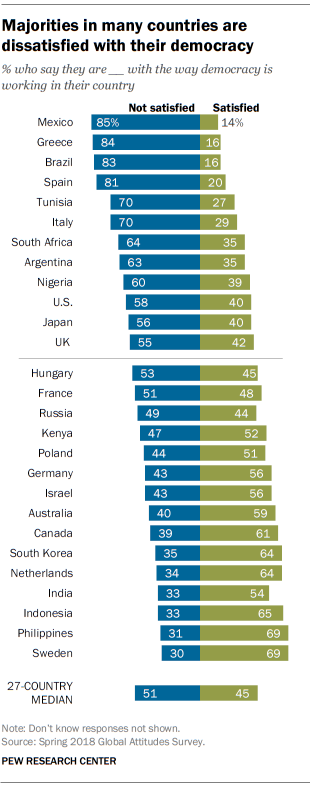 As Tunisia heads towards scheduled parliamentary and presidential elections later this year, a bipartisan Senate resolution has reaffirmed the U.S.-Tunisia partnership, and publicly supported Tunisia’s ongoing transition “into a vibrant and stable democracy.” As Tunisia heads towards scheduled parliamentary and presidential elections later this year, Senators Bob Menendez (D-N.J.), Ranking Member of the Senate Foreign Relations Committee, and Mitt Romney (R-Utah) yesterday praised Tunisia’s people and political leaders for their commitment to democracy and rule of law.
As Tunisia heads towards scheduled parliamentary and presidential elections later this year, a bipartisan Senate resolution has reaffirmed the U.S.-Tunisia partnership, and publicly supported Tunisia’s ongoing transition “into a vibrant and stable democracy.” As Tunisia heads towards scheduled parliamentary and presidential elections later this year, Senators Bob Menendez (D-N.J.), Ranking Member of the Senate Foreign Relations Committee, and Mitt Romney (R-Utah) yesterday praised Tunisia’s people and political leaders for their commitment to democracy and rule of law.
But Tunisia is one of 12 countries most dissatisfied with democracy, according to the Pew Research Center, including four – Mexico, Greece, Brazil and Spain – where eight-in-ten or more were dissatisfied, and another five where six-in-ten or more expressed dissatisfaction: Tunisia, Italy, South Africa, Argentina and Nigeria. Such levels of discontent explain why some observers view Tunisia’s democracy as enduring, but fragile.
In the run-up to this fall’s poll, Ennahda remains one of the country’s most important political parties, the Project on Middle East Democracy notes. In a new Expert Q&A, POMED Nonresident Senior Fellow Anne Wolf* discusses the past,  present, and future of the Ennahda movement, drawing on her book Political Islam in Tunisia: The History of Ennahda. Wolf refutes the myth of a secular Tunisia, discusses Ennahda’s mistakes and successes since the revolution, and warns that the threat of repression against the movement has not disappeared.
present, and future of the Ennahda movement, drawing on her book Political Islam in Tunisia: The History of Ennahda. Wolf refutes the myth of a secular Tunisia, discusses Ennahda’s mistakes and successes since the revolution, and warns that the threat of repression against the movement has not disappeared.
Read the Q&A here.
*Anne Wolf is Nonresident Senior Fellow at POMED [a partner of the National Endowment for Democracy], the Margaret Smith Research Fellow at Girton College, University of Cambridge, and an associate editor of the Journal of North African Studies.







